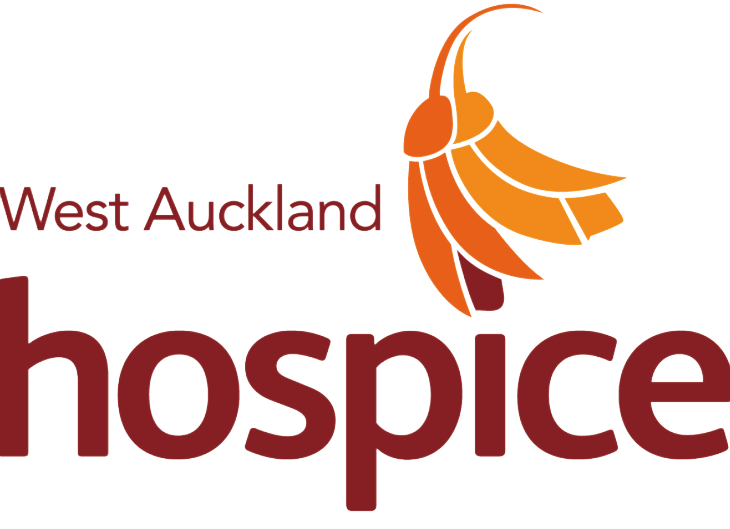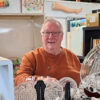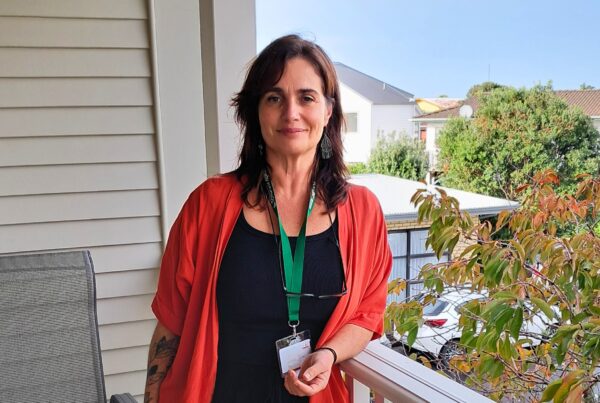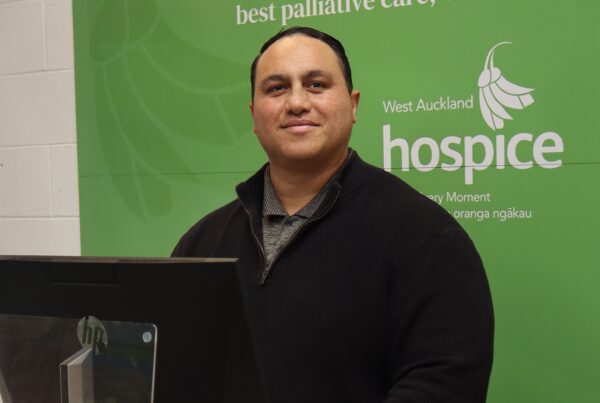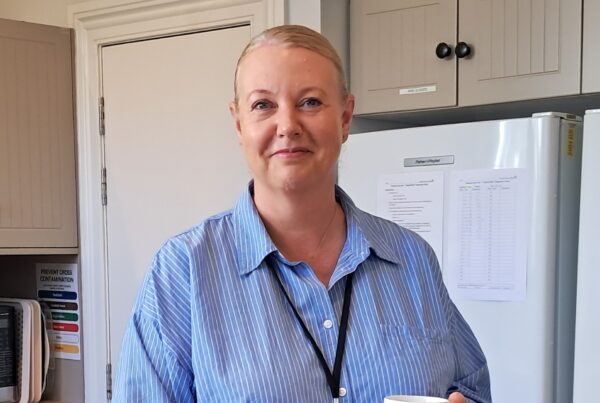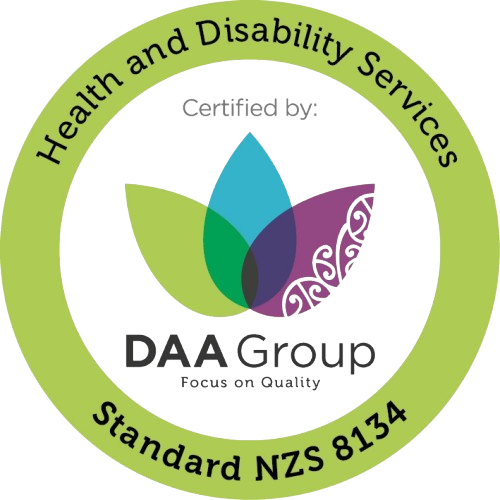Kat’s role of Clinical Nurse Specialist (Virtual) at Hospice West Auckland is ‘the best job in the world’. With a background in specialist palliative care, she initially started with Hospice’s Afterhours team on the 24-hour phone support line before jumping at the opportunity to join the community team working as a CNS virtually. As well as remaining part of the Afterhours team, she now provides specialist nursing advice virtually via phone and zoom and spends one day per fortnight in person out in the West Auckland community. “That one day in person every second week nourishes my soul,” she explains. “I love working face-to-face, and I’m so fortunate in this role to be able to do what I love and still have it fit my personal circumstances.”
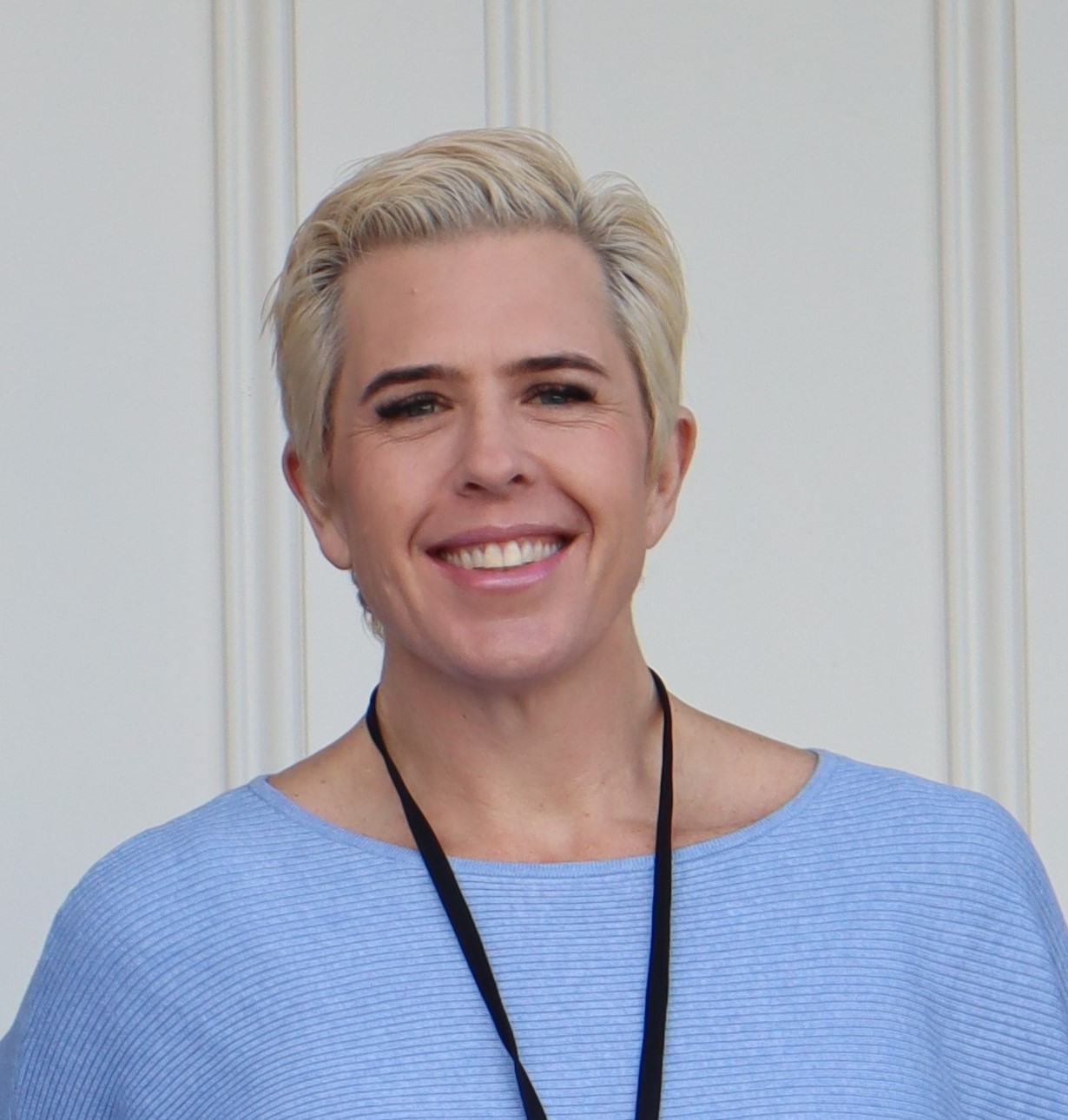
As part of the community team, Kat has her own patient load just like all of the nurses. “I will often care for patients who require less face-to-face support,” she says. “It may be people who are stable, or in residential care facilities, and on my days in person I will visit them.”
Since the advent of Covid, remote working and virtual service delivery has become the norm and for Hospice this is an important extension of delivering care. Being able to zoom at short notice with no travel time involved, to include whānau in sessions when they can’t be there in person, to be there on screen in the wee hours of the night while waiting for an ambulance to arrive – these are all possible now. Some people prefer virtual services over in-person because they are still working and need appointments outside their work hours, or want their privacy protected and not have their neighbours know they are sick.
A typical day starts with a morning huddle where the medical, nursing and social services teams all gather via zoom to debrief what has happened in the past twelve hours and plan for the day. “We look at what needs following up. Who needs a medical review? Who needs a nursing visit? What’s changed overnight that we need to follow up? What is urgent?” says Kat. “And as a virtual CNS, a lot of my role is supporting the team.”
For example, the CNS’ might each have a full day of in-person visits scheduled but there are crisis calls which came in during the night where a patient needs attending to first thing in the morning. “As a team we’ll look at what scheduled visits we can move, and what I can take that can be done via phone or zoom to enable those urgent visits to be done,” explains Kat. “As a team we are continuously responding to changing circumstances.”
Advice, demonstrations, reassurance and troubleshooting are just some of the invaluable supports that can all be ably provided virtually. “Caring for your loved one at home is a huge ask of families these days,” says Kat. “We teach carers how to do this, but it’s often a new language on top of everything they are experiencing. It can be so difficult to take everything in. A nurse or healthcare assistant will do a teaching session while visiting, but then it’s time to give medication in the middle of the night and the family member can’t remember how it works or what to do. But we can talk them through it on the phone or demonstrate via zoom. Or we can troubleshoot why the pump is beeping or give people confidence in managing medications.”
Kat says the nurses working virtually provide a lot of psychosocial support. “Just being able to spend 20 minutes on zoom or the phone, acknowledging how hard this is but that they’re ok and they’re doing it,” she says. “Taking the time to listen and let them offload, reminding them to keep putting one foot in front of the other. The reality of being home for end of life can put a massive load on loved ones. As an organisation we do everything we can, providing access to our medical officers, our social team, counsellors and everybody who works together to get as much support into that home as possible. And often, even with all of that, it’s still really challenging. But what people will sit with once their loved one has passed, is that they were able to keep their promise. And Hospice makes that possible.”
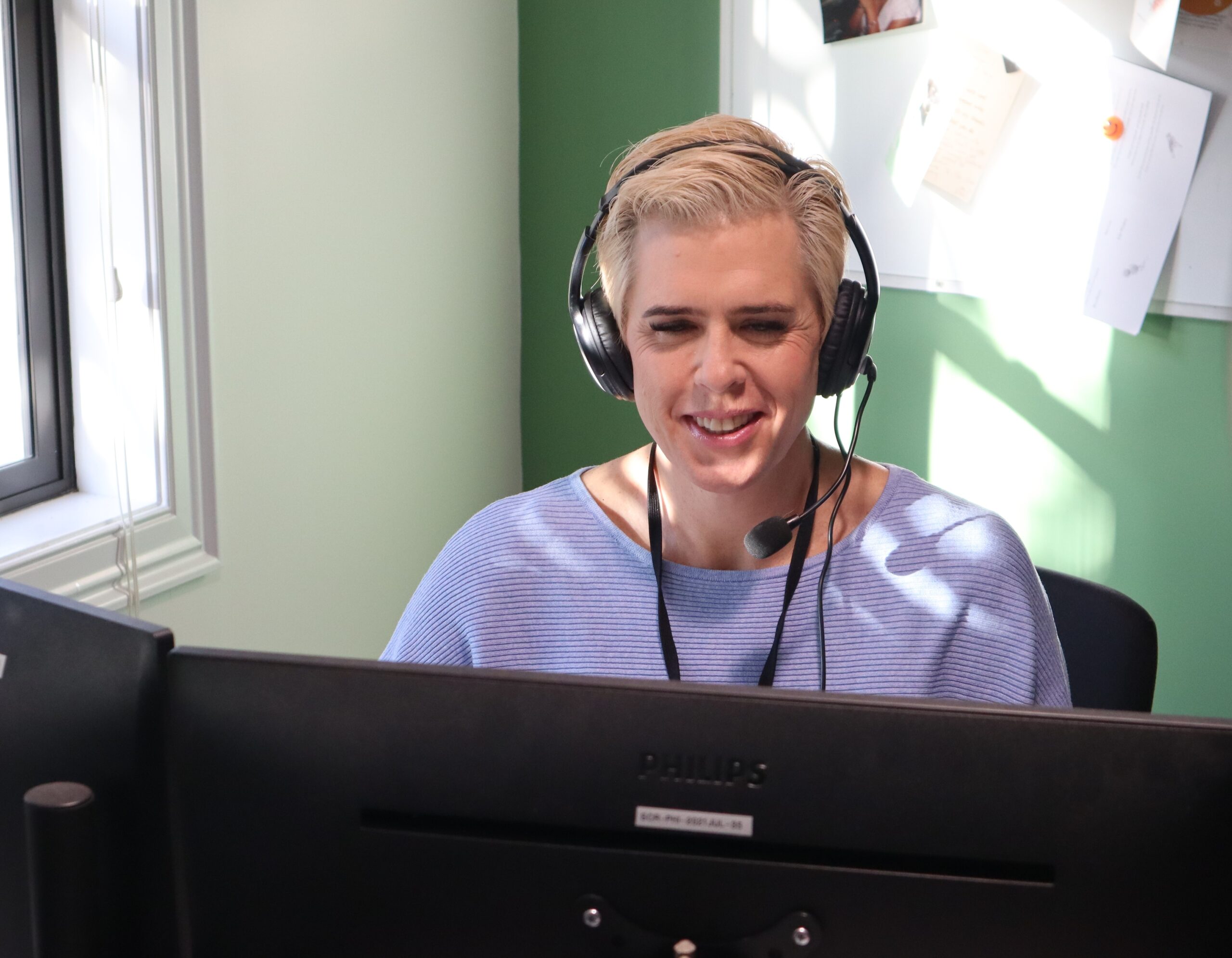
There are also those times when caregivers have done as much as they can and it’s time to rethink circumstances. This is when the virtual nurses provide that reassuring ‘reframing’, pointing out that if you’ve reached that point where your loved one is going into residential care, it doesn’t that mean that you stop caring for them. “We tell them: ‘it’s just a different place of care. You’re still going to be their advocate and you’re still going to be there for them. It’s just a change of circumstances because now you need a bigger support team’. We help them to see that this is not a failure.” Kat says it is incredibly special to be able to offer that reassurance.
Hospice’s Afterhours team are all experienced Clinical Nurse Specialists. “When that phone rings at any time of the day or night it’s answered by a CNS,” explains Kat. “It’s a phenomenal service and it’s lovely to be a part of that. And when it comes to dealing with calls where there is a high level of distress, we have the ability to, on the same line, contact the ambulance and hand over to them, while keeping the caller on the line and supporting them through that whole experience. I’m really grateful we’re able to do that.”
Kat specifically wanted to work for Hospice West Auckland. “I wanted to join an organisation that I was proud to work for, that had values and morals that aligned with mine and are woven through my everyday work. It’s wonderful!” Kat says the team support is outstanding: “We’re not just a team of CNS’ – at any given moment you can tap into a whole team of specialists. Our doctors will go out at three in the morning if that’s what is required. I don’t know anywhere else that happens!”
Although she predominantly works remotely, Kat emphasizes that she makes strong connections with her patients and their whānau. “You’re seeing people often at their most vulnerable. You’re in their home and they’re in the midst of it – and you’re in it with them. Those connections stay with you.”
Kat finds her role to be hugely rewarding, with relationships that have ‘no capacity for surface level – they’re so real.’ It’s a space where asking how someone is, is very meaningful and important. “I fell in love with palliative care because it was truly holistic,” she says. “We’re a service that slows down and actively listens and responds and acknowledges. As a career it doesn’t get any better – my life is enriched massively by my work.”
